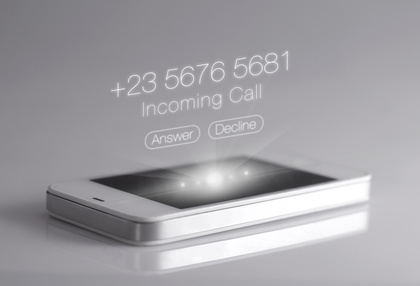The U.S. District Court for the District of New Jersey recently ruled that 18 telephone calls to a consumer over a two-week period – of which 17 were unanswered, and the last where the consumer hung up – did not violate the federal Fair Debt Collection Practices Act (FDCPA). In so ruling, the Court also affirmed that under the federal Telephone Consumer Protection Act (TCPA), persons who knowingly release their phone numbers have in effect given their invitation or permission to be called at the number which they have given, absent instructions to the contrary. A copy of the opinion…
Posts published in “TCPA”
The U.S. Court of Appeals for the Second Circuit recently held in a non-precedential opinion that a consumer, in the circumstances of this case, did not have standing to bring putative class action claims after entry of judgment in his favor on his individual claims pursuant to the defendants’ offer of judgment under Rule 68 of the Federal Rules of Civil Procedure.
The Federal Communications Commission recently denied the national Mortgage Bankers Association’s petition for exemption from the “prior express consent” requirement of the Telephone Consumer Protection Act for certain mortgage servicing calls and texts. A copy of the FCC’s Order denying the petition is available at: Link to FCC Order. As you may recall, the TCPA and the FCC’s implementing rules prohibit autodialed calls and texts “to wireless telephone numbers and other specified recipients except when made: (1) for an emergency purpose; (2) solely to collect a ‘debt owed to or guaranteed by the United States’; (3) with the prior express…
The U.S. District Court for the Middle District of Florida recently held that a mortgage servicer did not have standing to invoke a jury trial waiver in a mortgage when the servicer was not a party to the mortgage.
The U.S. District Court for the Middle District of Florida, Orlando Division recently ruled that debtors’ FCCPA and TCPA claims did not arise out of and were not related to their mortgage to fall under the jury waiver provisions in the mortgage where the claims arose out of attempts to enforce a debt that was discharged in bankruptcy. The Court also ruled the debtors sufficiently stated a claim under FCCPA by alleging the creditor received notice of the debtors’ bankruptcy case to constitute actual knowledge the debtors’ were represented by counsel. A copy of the opinion in Bray et al v.…
The U.S. District Court for the Northern District of California recently held that an individual had Article III standing to bring a federal Telephone Consumer Protection Act claim against a bank because the individual sufficiently alleged a concrete and particularized injury. However, the Court warned that not just any alleged violation of the TCPA will necessarily give rise to Article III standing. The Court found persuasive the allegations here that the bank supposedly made voluminous calls to the individual even after the individual supposedly requested the bank to stop calling him because he was not the debtor. A copy of…
The U.S. Court of Appeals for the Third Circuit recently held that a businessowners insurance policy did not cover a class action judgment that arose out of unsolicited advertisement communications in violation of the federal Telephone Consumer Protection Act. A copy of the opinion in Auto-Owners Insurance Company v. Stevens & Ricci Inc. is available at: Link to Opinion. A business was solicited by an advertiser who claimed to have a fax advertising program that complied with the TCPA, 47 U.S.C. § 227. The business allowed the advertiser to fax thousands of advertisements to potential customers on its behalf. Six years later, a…
The U.S. District Court for the Northern District of California recently held that a mobile phone app designed to send messages to a phone user’s contacts did not violate the federal Telephone Consumer Protection Act because the phone user selected the message recipients and had to take several affirmative steps for the app to send the unwanted messages. In so ruling, the Court also held that the plaintiff had Article III standing because his TCPA claim did not simply allege a procedural violation, and instead alleged that he suffered concrete harm because the mobile app provider supposedly invaded his privacy…
The U.S. District Court for the Southern District of California recently held that a TCPA plaintiff alleging some 290 unwanted autodialed calls to her cell phone did not demonstrate “concrete injury” sufficient to confer Article III standing under Spokeo v. Robins. A copy of the opinion in Romero v. Department Stores National Bank et al is available here: Link to Opinion. The plaintiff failed to make payments to her credit card, and started to receive collection calls. The defendant creditors allegedly called the plaintiff on her cellular telephone more than 290 times using an automated telephone dialing system (ATDS) over the course of six months…
The Federal Communications Commission (FCC) recently clarified “that the TCPA does not apply to calls made by or on behalf of the federal government in the conduct of official government business, except when a call made by a contractor does not comply with the government’s instructions.” A copy of the FCC’s Declaratory Ruling 16-72 is available at: Link to Declaratory Ruling. As you may recall from our prior update, Congress amended the Telephone Consumer Protection Act (TCPA) in the Bipartisan Budget Act of 2015 to allow autodialed calls “made solely to collect a debt owed to or guaranteed by the…
Interpreting the Supreme Court of the United States’s ruling in Campbell-Ewald Co. v. Gomez, the U.S. District Court for the District of Minnesota recently held that a defendant cannot moot a putative class action against it, even by tendering the full amount claimed to the named plaintiff and before a motion for class certification is filed. A copy of the opinion in Ung v. Universal Acceptance Corporation is available at: Link to Opinion. Beginning in June 2014, an auto finance company allegedly repeatedly called the plaintiff’s cell phone in an attempt to reach an individual who allegedly listed the plaintiff as a…
The Federal Communications Commission (FCC) recently issued a Notice of Proposed Rulemaking (NPRM) regarding recent amendments to the federal Telephone Consumer Protection Act (TCPA), seeking comment on among other things: (1) which calls are covered by the phrase “solely to collect” under the amendments; (2) the meaning of the phrase “a debt owed to or guaranteed by the United States” in the amendments; (3) how the FCC should restrict the number and duration of covered calls; (4) whether consumers should have a right to stop covered calls at any point the consumer wishes; and (5) whether callers should be required…











